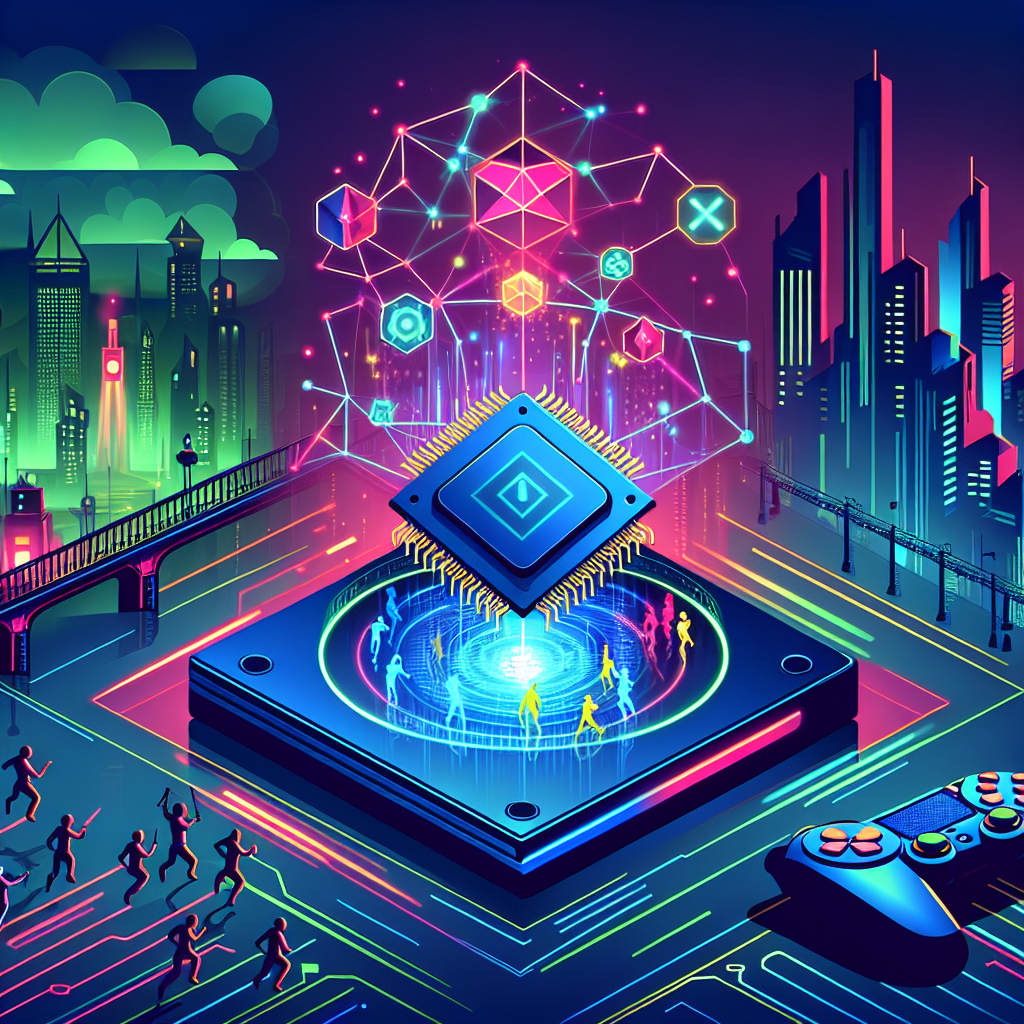Artificial Intelligence (AI) and gaming have had a long-standing relationship, with AI being used in various aspects of game development and design. However, as technology continues to advance, the integration of AI into gaming has become even more prevalent, leading to new and innovative ways to enhance the gaming experience. In this article, we will explore the future of interactive entertainment with the integration of AI in gaming.
AI in Gaming: A Brief Overview
AI has been used in gaming for many years, primarily in the form of non-player characters (NPCs) and enemy behavior. These AI-controlled characters are programmed to act and react in certain ways based on the player’s actions, creating a more dynamic and challenging gameplay experience. AI is also used in procedural generation, where algorithms are used to create levels, maps, and other game content on-the-fly, providing players with endless possibilities and challenges.
In recent years, AI has become even more sophisticated, with the introduction of machine learning and neural networks. These technologies allow AI to learn and adapt to player behavior in real-time, creating a more personalized and immersive gaming experience. AI can now analyze player data, predict their actions, and even create custom content based on their preferences, leading to a more engaging and interactive gaming experience.
The Future of Interactive Entertainment
The integration of AI into gaming has opened up a world of possibilities for the future of interactive entertainment. Here are some of the key ways in which AI is shaping the future of gaming:
1. Enhanced gameplay experiences: AI can analyze player data and behavior to create more personalized and engaging gameplay experiences. For example, AI can adjust the difficulty level of a game based on a player’s skill level, provide hints and tips when needed, or even create custom challenges tailored to a player’s preferences.
2. Dynamic storytelling: AI can be used to create dynamic and branching storylines that change based on the player’s choices and actions. This can lead to a more immersive and interactive storytelling experience, where players have a real impact on the outcome of the game.
3. Realistic NPCs: AI-controlled NPCs can now behave more realistically, thanks to advancements in AI technology. NPCs can now have their own goals, motivations, and personalities, leading to more dynamic and engaging interactions with the player.
4. Procedural generation: AI algorithms can be used to create endless possibilities for game content, such as levels, maps, and quests. This can lead to a more diverse and challenging gaming experience, where no two playthroughs are the same.
5. Adaptive difficulty: AI can analyze player data and adjust the difficulty level of a game in real-time, providing a more balanced and challenging experience for players of all skill levels. This can help keep players engaged and motivated, leading to a more enjoyable gaming experience.
FAQs
Q: How is AI used in game development?
A: AI is used in various aspects of game development, such as creating realistic NPCs, generating game content, analyzing player data, and adjusting gameplay experiences based on player behavior.
Q: How does AI enhance the gaming experience?
A: AI can enhance the gaming experience by creating more personalized and engaging gameplay experiences, dynamic storytelling, realistic NPCs, procedural generation, and adaptive difficulty levels.
Q: What are some examples of AI in gaming?
A: Some examples of AI in gaming include NPCs with their own goals and personalities, procedural generation of game content, adaptive difficulty levels, and dynamic storytelling that changes based on player choices.
Q: How will AI shape the future of interactive entertainment?
A: AI will continue to shape the future of interactive entertainment by providing more personalized and immersive gaming experiences, dynamic storytelling, realistic NPCs, procedural generation of game content, and adaptive difficulty levels.
In conclusion, AI is set to revolutionize the gaming industry, providing more personalized and immersive gaming experiences for players. With advancements in AI technology, the future of interactive entertainment looks bright, with endless possibilities for dynamic storytelling, realistic NPCs, procedural generation, and adaptive gameplay experiences. The integration of AI into gaming will continue to push the boundaries of what is possible in interactive entertainment, leading to a more engaging and immersive gaming experience for players around the world.

